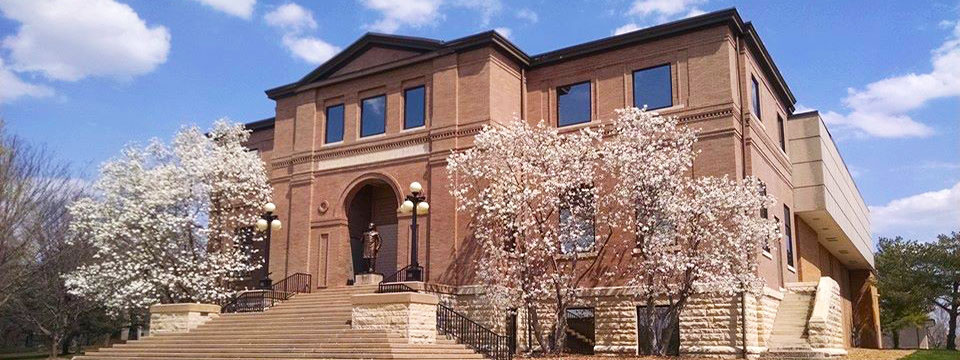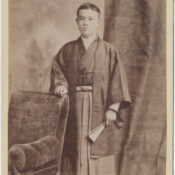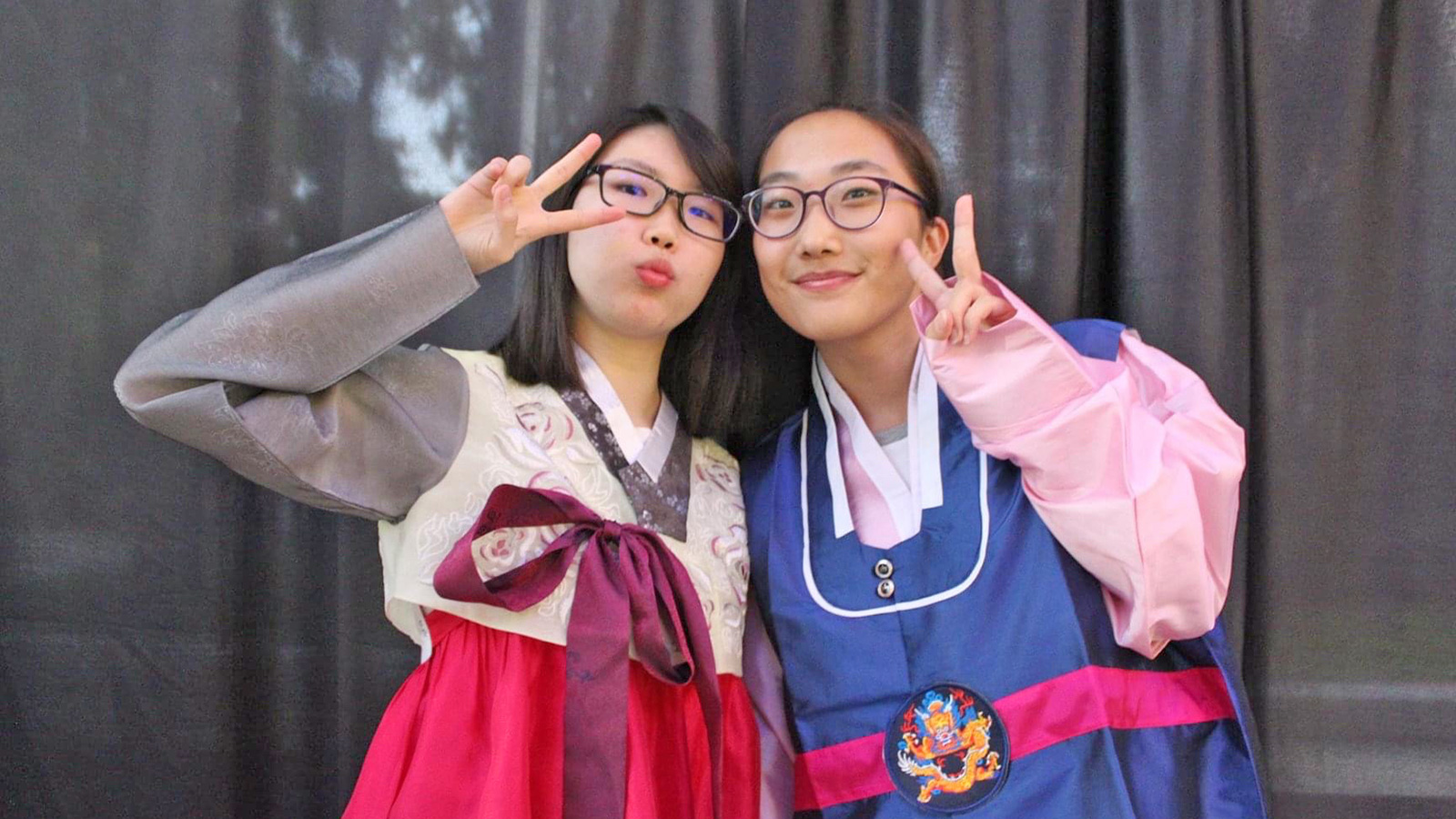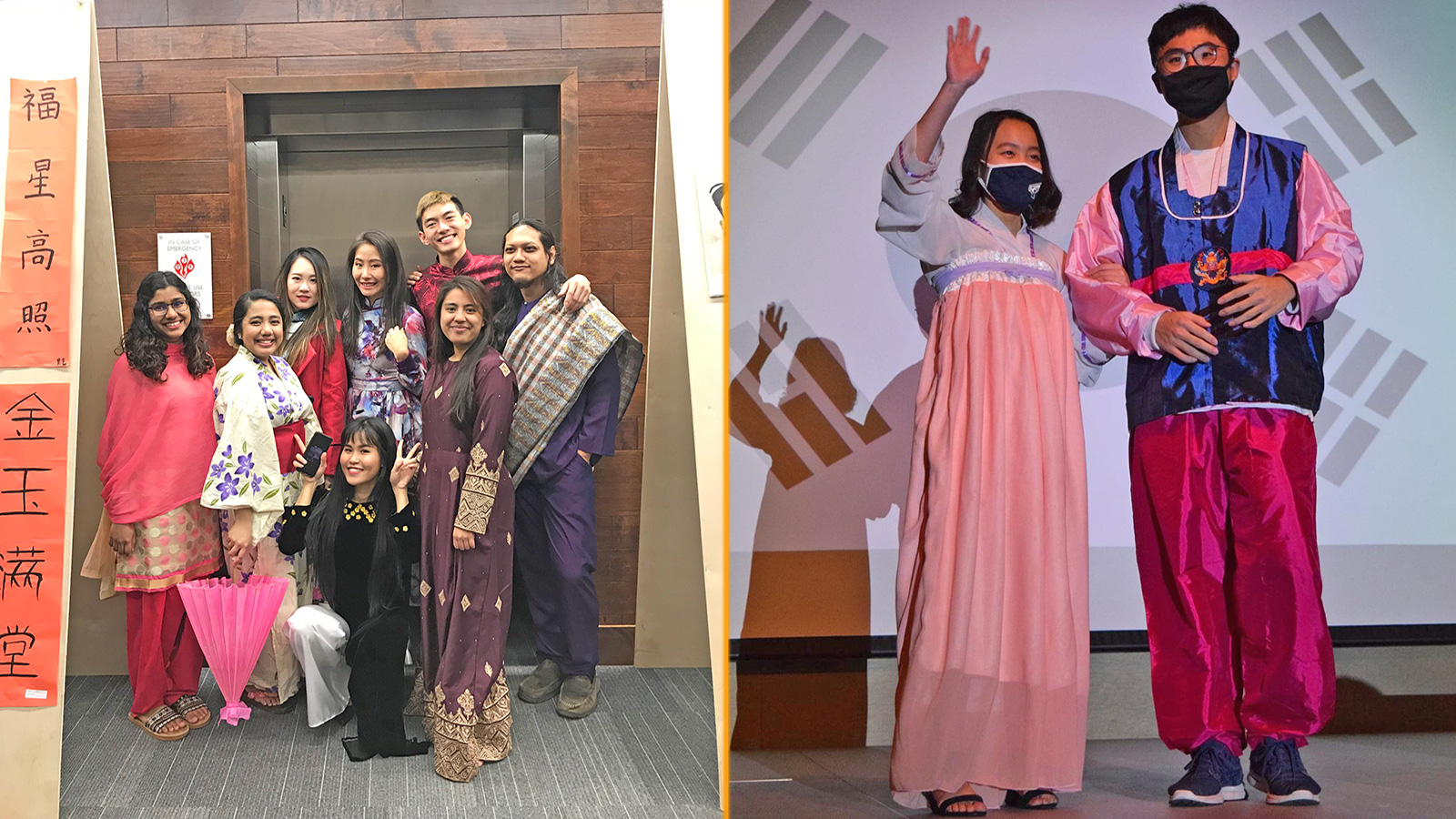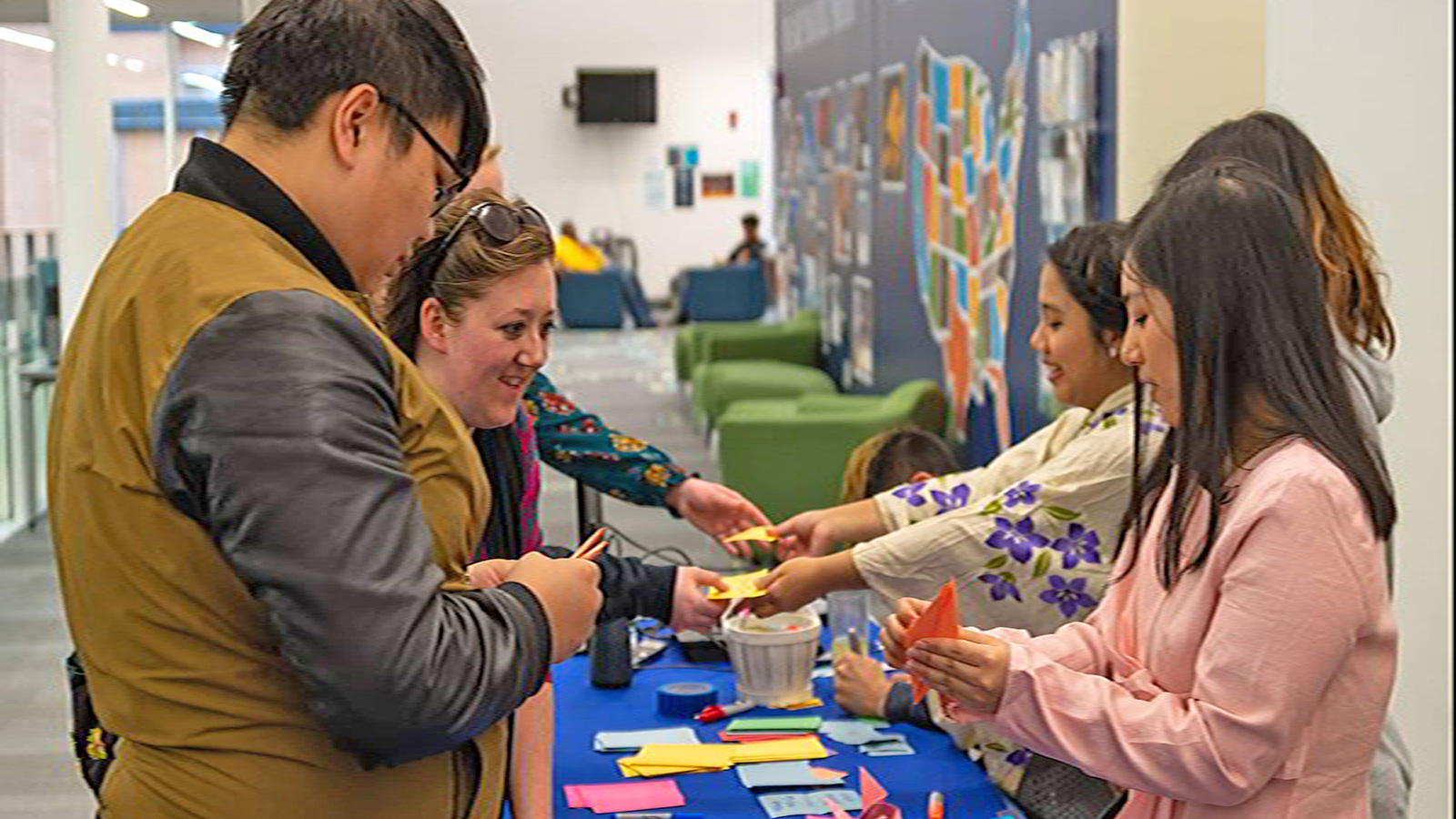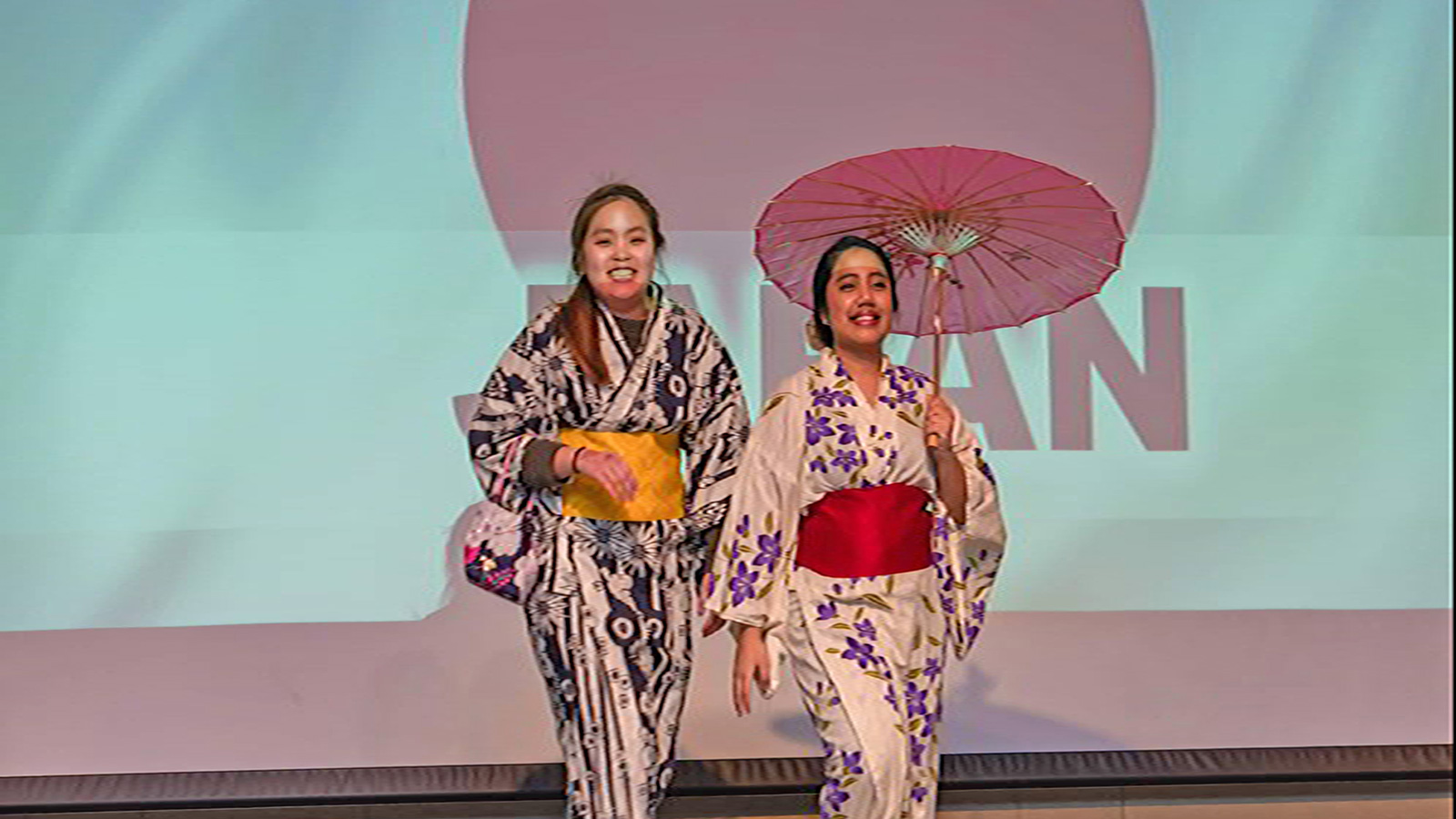Asian American and Pacific Islander Heritage Celebration
Celebrating Asian Heritage at Upper Iowa University
In the United States May is designated as Asian American Pacific Islander (AAPI) Month. However, to accommodate for the academic year, Upper Iowa will begin celebrating the culture, traditions and long history of contributions and achievements of Asian Americans and Pacific Islanders in the United States beginning mid-April into May.
History Celebration
In 1978, Congress passed a joint Congressional Resolution to commemorate Asian American Heritage Week during the first week of May because of two important anniversaries. First, the arrival of the first known Japanese immigrant to the U.S. on May 7, 1843; secondly, the completion of the transcontinental railroad on May 10, 1869, which upwards of 20,000 Chinese workers helped to construct. It was not until 1990 that the observance was expanded to a month. The month pays tribute to the generations of Asian and Pacific Islanders who have enriched the United States’ history and are instrumental in its future success.
Upper Iowa has a long history of recruiting students from Asia and the Pacific Islands. While the first international student to attend Upper Iowa University in 1872 was from Dublin, Ireland, the next three international students were all from Japan:
- Jay Kono attended UIU from 1890-1892. While he was here, he also lectured and wrote an article in the Collegian student newspaper about the development of Japanese Schools.
- Peter Goro Kaburagi from Chibaken, Japan graduated from UIU in 1895, then earned his Master’s degree here in 1899. While he was here, he taught the UIU students about Japan in entertaining ways, and after graduation traveled and continued to lecture until he settled down in Vancouver, Canada. He served as Superintendent of Japanese Missions in British Columbia; was owner and president of the Japanese Daily News; Principal of Vancouver Anglo-Japanese Ladies School; author of several articles on travel, social, and religious subjects; lecturer on Japan and Missionary work in Canada and Japan. He also traveled to Japan, China, Manchuria, and Korea.
- Kataoka, Saul from Takusima, Japan graduated from UIU in 1899. In 1895, Mr. Kaburagi and Kataoka provided in Oriental Tea sponsored by the Y. W. C. A. Rugs were spread around the dining room and tea served in true Oriental style. For entertainment, Mr. Kaburagi read people’s fortunes, and Mr. Kataoka provided music and a reading. Mr. Kataoka was active at UIU, including participating in several elocution recitals. After UIU, he graduated from Drew Theological Seminary, then returned to Japan to preach. He was reported to have been killed in the Boxer Rebellion (1899-1901) in which the Chinese rebelled against foreigners and Christians.
Historical Feature:
What a Japanese Alumnus Thinks of Upper Iowa:
May 2, 1918.
Mr. C. C. Dickman,
My Dear Class Mate:
It is pleasant to get a letter from a class mate, it makes my heart beat faster from you all. Oh! It will be fine If I can get a letter from our class even once in ten years; for I never got one yet.
I suppose our class never had such a thing as “a class letter” In the past, had they? Well, it is so sweet to hear from you that our class mates are all doing so nicely In their works, especially for the college.
Now, I wish I could say also like the others, but as you probably know our race (Japanese) are always have been discriminated against In this country, and sometimes we were persecuted as well; so we had to work hard and take time for the success.
I appreciate very much the good influence I received at U. I. U., I ought to do all in my power for her.
Please find enclosed cheque one hundred dollars, which Is my very best even If it is very small amount; yet If you accept It for me as “a widow’s mite.”
It will please me much, as I donate the same with true devotion and grateful heart for the institution.
I am ever yours, GORO KABURAGI, M. A. 472 Cordova St., E.
An early Japanese student at Upper Iowa in traditional clothing of the time.
Campus Celebrations
Scheduled Events (All times CST)
All Month - Asian American and Pacific Islander Spotlights in the Student Center
24 million people in the United States identify as Asian with 1.6 million identifying as Native Hawaiian, Pacific Islander or a combination. These diverse communities have shattered barriers, transformed our cultural landscape, and enriched this country for generations, from STEM and human rights to art and cuisine. Visit the Student Center to read about some of these influential and inspiring individuals.
April 8th: Chinese Calligraphy - 12:00pm - 1:00 pm Student Center Commons
Come to the Student Center over the lunch hour to get your name (loved one’s name or a word that is important to you) written in Chinese Calligraphy. “In China, from a very early period, calligraphy was considered not just a form of decorative art; rather, it was viewed as the supreme visual art form, was more valued than painting and sculpture, and ranked alongside poetry as a means of self-expression and cultivation.” (Chinese Calligraphy | Asia Society)
Ziyuan Li (goes by Li), UIU’s Senior International Admissions Counselor, is the artist for this event.
April 18th 3:00pm - 4:00pm International Coffee Hour (Asian Fusion) in the Student Center
This International Coffee Hour we will spotlights treats and teas from China, Japan and India. Come enjoy recipes shared by Li, Assistant Director for International Admissions; Daigo, Graduate Assistant for Student Life; and Shilpa, Assistant Professor for Criminal Justice.
Please bring your UIU ID.
April 22nd 7:00 pm Grocery Bingo in the Student Center Commons
Students have a chance at winning some tasty Asian-inspired meals and ingredients!
Zoom Recording – Lunch & Learn: The Nostolgia of Food
During this Lunch & Learn Dr. Shilpashri Karbhari, Assistant Professor of Criminal Justice at UIU, will share her research on the growing population of Asians in Iowa and the importance of food to stay connected to one’s culture and family. Panelists will share their experience with food and how it connects them to family and memories. They will also share the complexities of accessing diverse foods in NE Iowa and how this can at times magnify the feeling of homesickness.
Panelists:
Ziyuan Li (better known as, Li), is originally from China, and has been living in the US for over a decade. Li is an alum of UU and is the Assistant Director of International Admissions. He loves to learn about different cultures, taste different food, and share his culture with others. Li’s favorite quote is “Coming together is a beginning, staying together is progress, and working together is success. ” – Henry Ford
Ellya Mohd Shaferi, (better known as “Yaya”) is from Malaysia and has been living in the US for two years. She is the Graduate Assistant for Student Life (Student Accessibility Services & Student Activities) and will be graduating this May with her MBA. Yaya loves her Malaysian food so very much and is excited to share one of her favorite recipes during this month’s international coffee hour!
Topic: Lunch & Learn: The Nostalgia of Food
Time: Apr 12, 2023 12:10 PM Central Time (US and Canada)
Join Zoom Meeting
https://uiu.zoom.us/j/84951419659
Meeting ID: 849 5141 9659
One tap mobile
+16469313860,,84951419659# US
+13017158592,,84951419659# US (Washington DC)
Dial by your location
+1 646 931 3860 US
+1 301 715 8592 US (Washington DC)
+1 305 224 1968 US
+1 309 205 3325 US
+1 312 626 6799 US (Chicago)
+1 646 558 8656 US (New York)
+1 386 347 5053 US
+1 507 473 4847 US
+1 564 217 2000 US
+1 669 444 9171 US
+1 669 900 6833 US (San Jose)
+1 689 278 1000 US
+1 719 359 4580 US
+1 253 205 0468 US
+1 253 215 8782 US (Tacoma)
+1 346 248 7799 US (Houston)
+1 360 209 5623 US
Meeting ID: 849 5141 9659
Find your local number: https://uiu.zoom.us/u/kbHxpGplVt
PBS Spotlights AAPI Voices in Honor of Asian American Pacific Islander Month
PBS celebrates Asian American and Pacific Islander Heritage Month with three new broadcast programs and a collection of streaming and short-form titles that spotlight the work and stories of AAPI voices from around the country and throughout our nation’s history. https://www.pbs.org/about/about-pbs/blogs/news/pbs-spotlights-aapi-voices-in-honor-of-asian-american-and-pacific-islander-heritage-month/
TED Talks: I Am Not Your Asian Stereotype a Ted Talk by 18- year old Canwen Xu
Bad driver. Math wizard. Model minority. In this hilarious and insightful talk, eighteen-year-old Canwen Xu shares her Asian-American story of breaking stereotypes, reaffirming stereotypes, and driving competently on her way to buy rice. Canwen Xu’s slogan for life is “Canwen can win.” Born in Nanjing, China, she moved to the United States when she was two years old, and since then has lived in some of the whitest states in the country, including North Dakota, South Dakota and Idaho. A senior at Timberline High School, Canwen is passionate about politics, and is the national membership director and Idaho state director for the Young Democrats High School Caucus. Also a programmer, she started an all-girls computer science workshop called Code For Fun and received National Runner-Up in the 2014 NCWIT Aspirations in Computing competition.
SPOTLIGHT - International Student Association (ISA)
Students from different nations and cultural background come together to create integration among international students of all races and the university community, as well as to assist the students in the transition into American culture.
By organizing this association, we hope to fill gaps between all international students, no matter the country of origin. As an organization we focus on the educational, cultural, and social aspects of university life in order to serve as a connection between International and American Students.
ISA strives to promote and improve international students’ ability to adjust to American life and also to establish an advanced communication channel between the countries.
Interested in joining ISA? Contact Lisa Cameron at [email protected]
Asian American and Pacific Islander Support Resources
Asian Americans Advancing Justice (tool for reporting hate incidents)
Stop AAPI Hate (tool for reporting hate incidents)
South Asian Americans Leading Together (SAALT), which focuses on public policy analysis, advocacy and community building.
The National Federation for Filipino American Associations (NaFFAA), which develops young leaders, urges political participation and supports small businesses.
The National Queer Asian Pacific Islander Alliance (NQAPIA), which promotes visibility and provides education and tools to tackle homophobia and racism.
The Sikh American Legal Defense & Education Fund (SALDEF), a media and educational organization that promotes civic and political participation.
Empowered Pacific Islander Communities (EPIC), which seeks to empower Native Hawaiian and Pacific Islander (NHPI) communities through advocacy and research.
The National Asian American Pacific Islander Mental Health Association, which helps provide affordable care, translated resources and cultural competency for professionals.
Send Chinatown Love, which supports restaurants, many of which are immigrant-run and cash-only and so were rejected for government aid.
Detox Local – An extensive list of mental health and substance use resources specifically for the AAPI community.
